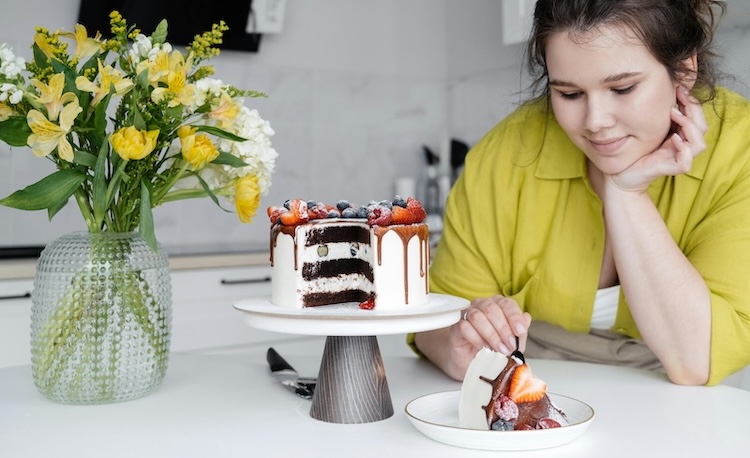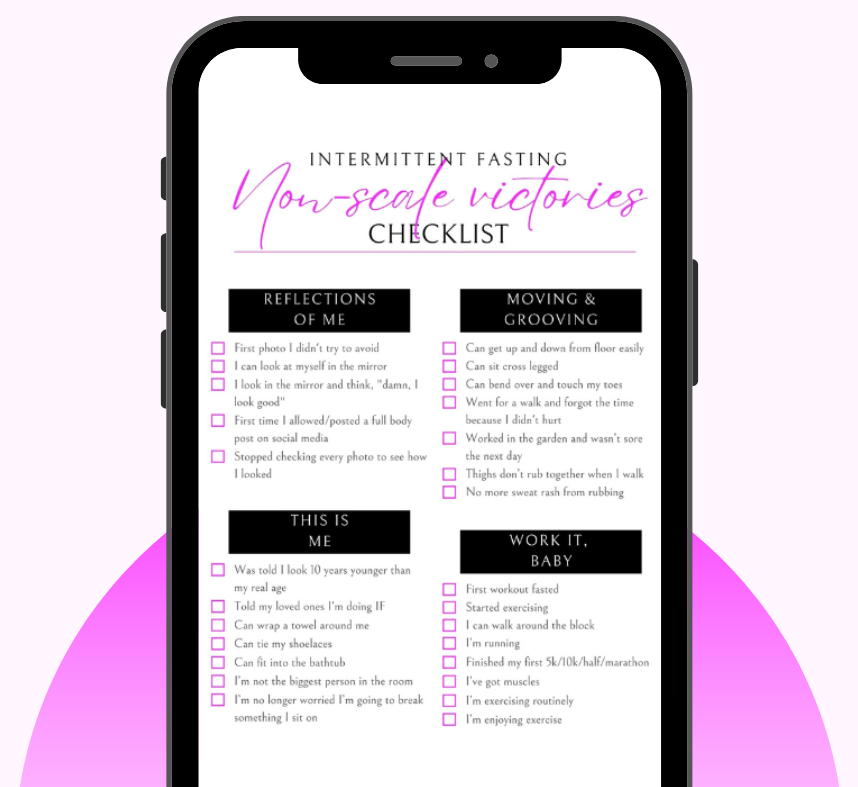Your cart is currently empty!
Stop punishing yourself and enjoy food freedom

Over the years of trying to lose weight, my relationship with food was complicated. I would jump into a new diet, lifestyle or eating plan with high hopes, expecting quick weight loss and a magic answer to my life-long problem. I’d carefully track how much I ate, what I ate, and cling to that rigid list of “good” and “bad” foods (usually I found the list online or a comment someone made in a Facebook group).
But when the scale wouldn’t move as quickly as I wanted, or I broke down and opened my fast early to eat the cookies someone brought to work, then shame set in. I failed because I wasted that time at the gym, or “ruined” my fast.
That “failure” then triggered my brutal inner critic. Thoughts of punishment would quickly follow, urging me to extend my fast, eat less during my window, or pile on extra exercise. The need to go to extremes left me feeling emotionally and physically drained.
This cycle repeated itself for far too long, until I finally realized why it was happening and what I needed to do to change it. When I’d categorize certain foods as “off-limits” or “bad,” my want to have it intensifed. The more I restricted them, the more I craved them.
Many of us were conditioned from a young age that food was a reward (and withholding it a form of punishment). The lollipop at the end of a sticker chart, food that was only allowed for adults and if we were really good we could have a small bite. We could only have pudding if we finished our dinner. Food became associated with our behavior.
This upbringing set a dangerous precedent, attaching moral value to food. A sense of deprivation follows when we attach a “bad” label to food like dessert, or punishment when attaching a “good” label to food we don’t like. Or, we restrict ourselves because we believe we haven’t “earned” the right to enjoy “special” foods.
“Cheat days” can be particularly tricky. They reinforce the idea of a whole day of eating “bad” foods as a reward, a light at the end of the tunnel after weeks of rigid restriction. This mentality can backfire, creating intense cravings and a sense of deprivation during the “good” days. This, in turn, can leave us feeling like we’re just waiting for the whole thing to end.
Using food as reward or punishment undermines our goals. It turns this essential source of nourishment, something to be enjoyed, into an enemy to be conquered. So, how do you break free from this cycle?
- Food is not inherently good or bad. Food provides energy, allows for social connection, and can be a source of pleasure. Use the 80/20 rule – 80% of the time, eat wholesome, nourishing foods. And when you crave something, eat it. You’ll be surprised to find that over time, the food you crave will be those wholesome foods.
- Focus on the positive steps you’re taking towards a healthier you. Going for a walk is a win, eating a bowl of greens is a win. Eating a slice of cake is the freedom of a conscious choice. And perfection is not a requirement.
- View intermittent fasting as a way to love your body, not a punishment for overeating. It’s a period of allowing your body to heal and reset. When you eat, you feast with enjoyment, to satisfaction.
- Question your food restrictions. Why are you denying yourself certain foods? Is it because you truly believe they’re bad, or is it a restriction based on shame? Eat the foods that make you feel good, not the foods other people tell you to eat (or not eat).
Remember, a healthy relationship with food is about balance and enjoyment. Give yourself permission to enjoy all types of food, in moderation. Savor the experience of eating, and listen to your body’s cues of hunger and satiety.
Let’s move away from the shame and punishment associated with food. Embrace a more positive and sustainable approach to healthy eating.

Get your 180 non-scale victories checklist
Are you tired of feeling trapped by the numbers on the scale? It’s time to shift your focus and discover the victories that truly matter on your wellness journey.
